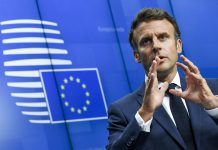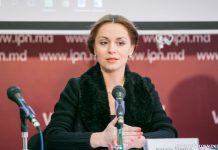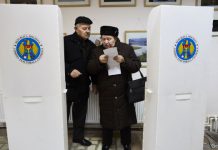One month after a police crackdown that left three young men dead, EU diplomats in Moldova are working on rebuilding internal stability and EU relations.
Twenty two-year old Ion Tabuleac, 23-year old Valeriu Boboc and 26-year old Eugen Tapu were allegedly beaten to death by police following post-election protests on 7 April. Some 300 more people were jailed and roughly treated. A clampdown on free press remains in force.
In Belarus in March 2006, when police jailed protesters without any deaths, the EU put President Alexander Lukashenko on a visa ban list 12 days later.
The EU has so far verbally criticised Moldova. But it is still welcome to send its foreign minister to an EU summit on 7 May. Some EU states back opening visa-free travel talks to help ease tensions with Romania. Mini-projects, such as police training by EU specialists, are on the cards.
The EU’s special envoy to Moldova, Kalman Mizsei, rejects any suggestion that human rights abuses are being swept under the carpet for the sake of peace, pointing to an ongoing investigation into the violence by the Strasbourg-based Council of Europe.
"I don’t want to compare different events [Belarus and Moldova]. You can be sure the EU has and is going to follow up in an appropriate manner. We want an honest and an open investigation and to hold people responsible," he told EUobserver.
"The commissioner on human rights of the Council of Europe has launched an investigation and will produce his results in a few weeks’ time. We will be guided by the findings of commissioner Hammerberg."
The diplomat indicated that EU-level punitive measures are unlikely, however.
"Harsh sanctions over these events now would be totally counter-productive," he said. "One death is one too many. At the same time we need to be proportional. We need to have a healing approach. At this moment, supporting national reconciliation is incredibly important."
Mr Mizsei and his two advisors have been in Chisinau almost every day since 8 April, meeting with victims of violence, opposition politicians and the powerful Communist party chief, outgoing President Vladimir Voronin.
With opposition parties expected to be involved in key committees in the future parliament, the EU envoy said he does not expect further social upheaval. But he painted a dark picture of the atmosphere in the union’s eastern neighbour.
"This is a moment of great national trauma, of high polarisation of political life, of fear on both sides of the political spectrum," he explained. "There is a crucial role for the EU to help to rebuild the centre ground and to build bridges between the two sides of the political spectrum."
Looking back at the post-election clashes, when demonstrators attacked the Moldovan parliament and raised a Romanian flag on its roof, Mr Mizsei said it is strange the police did not do more to hold back the crowd.
"There are a number of questions, including why police were not able to protect public buildings, which were attacked by quite a small number of people," he said. "This also requires an impartial investigation."
The EU diplomat urged Moldovan authorities to avoid using the flag incident to support accusations that EU member Romania staged the protests in an attempted coup.
"We expect that people tone down criticism of Romania, which is based on allegations and not established facts. Romanian flags appearing on 7 April doesn’t prove anything," Mr Mizsei said.






